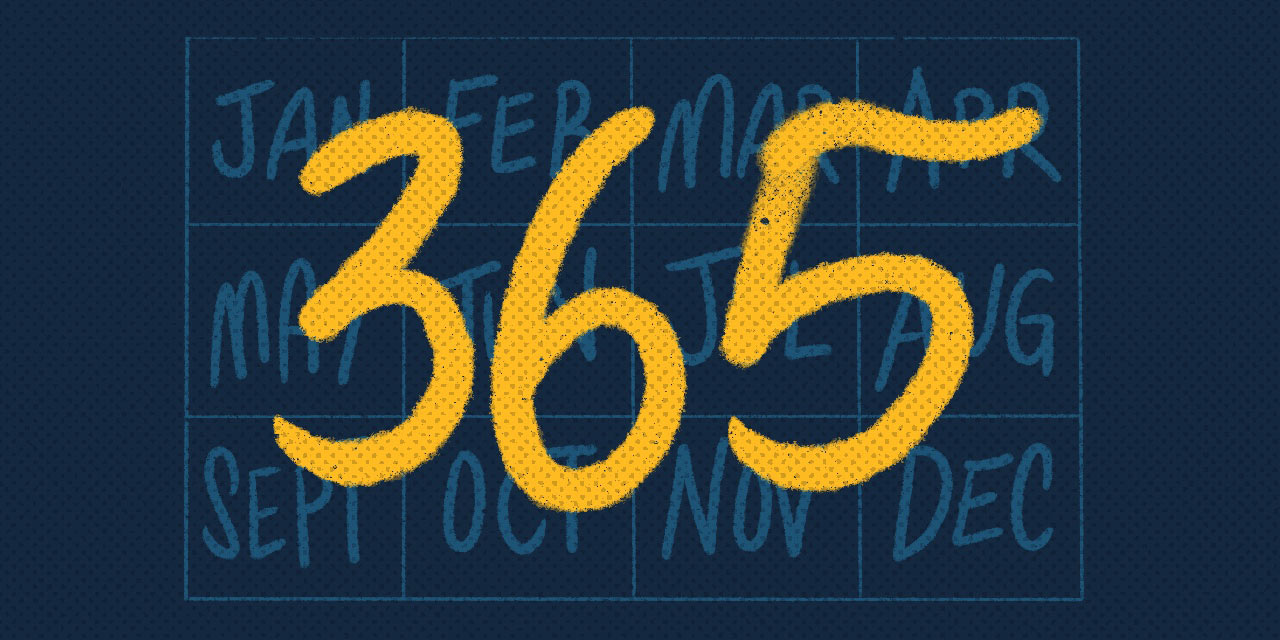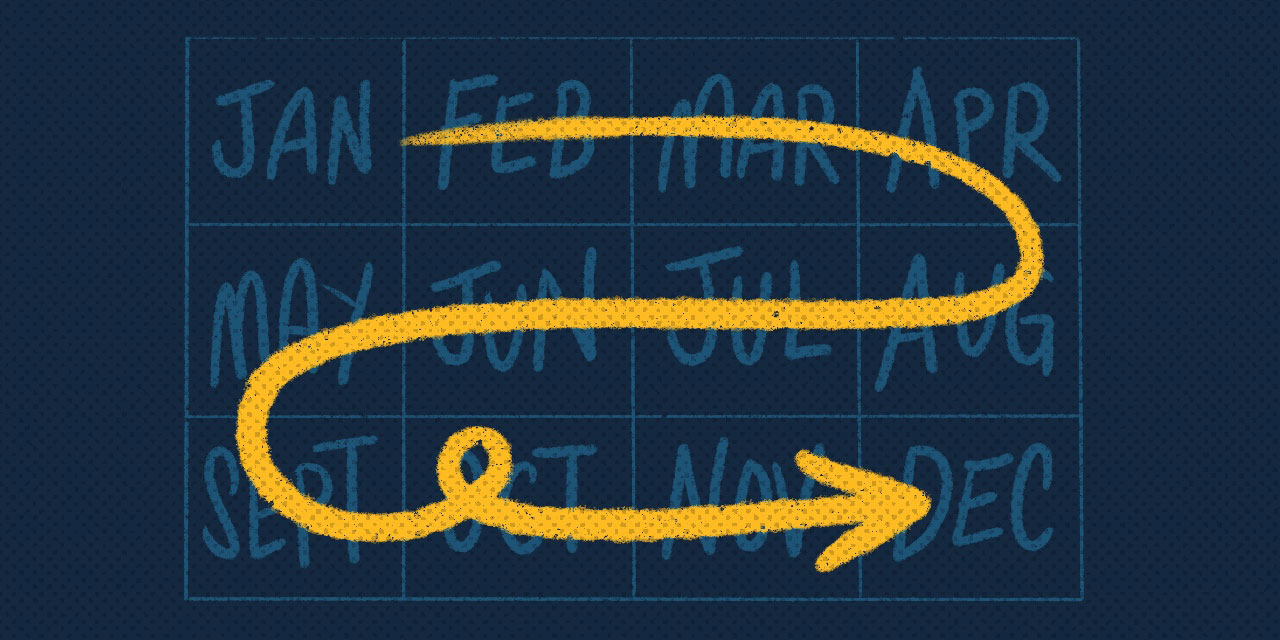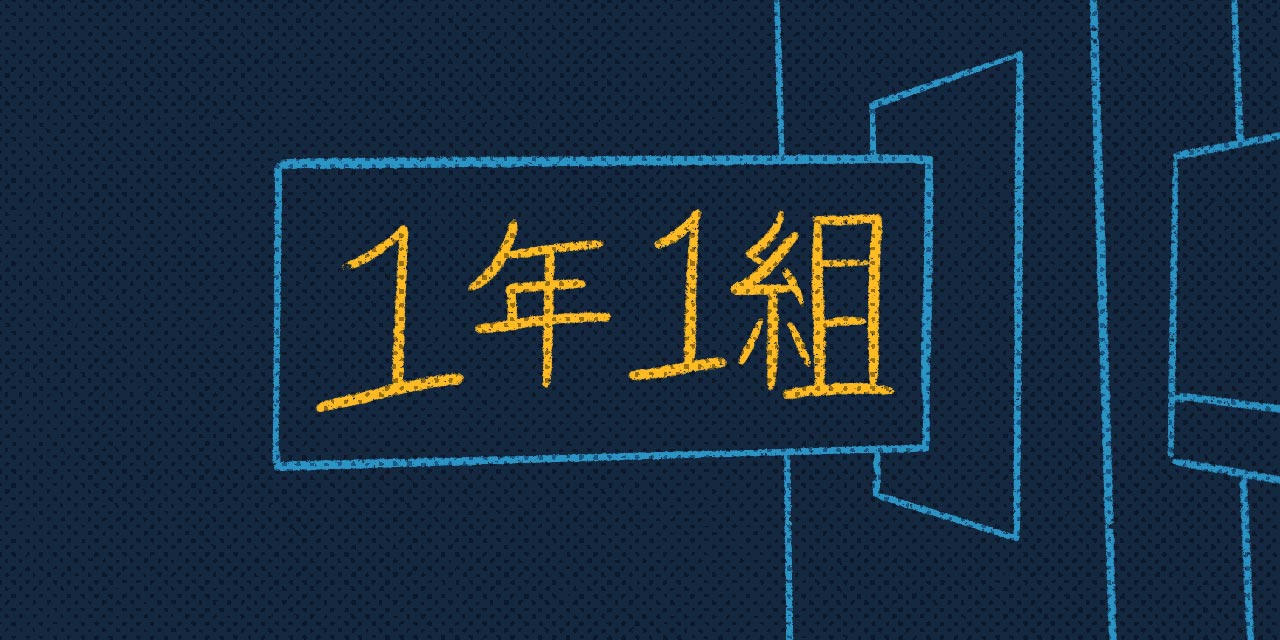Regular years, as units of time, are counted with 年.
The Japanese counter 年 (ねん/nen) is the counter for "years." In addition to this, it's used as an ordinal number (not a number you count, but a number that shows the ordering of something) for school years. It can also be the unit of measurement for how long it takes an astral body (a planet, for example) to complete one rotation around the sun.
As for counting pronunciation, 年 is very straightforward. Take a look at the chart below to make sure you know how to read each number before moving on:
| Numeral | Japanese | Reading 1 | |
|---|---|---|---|
| 1 | 一年 | いちねん | |
| 2 | 二年 | にねん | |
| 3 | 三年 | さんねん | |
| 4 | 四年 | よねん | |
| 5 | 五年 | ごねん | |
| 6 | 六年 | ろくねん | |
| 7 | 七年 | ななねん/しちねん | |
| 8 | 八年 | はちねん | |
| 9 | 九年 | きゅうねん (くねん) | |
| 10 | 十年 | じゅうねん | |
| 11 | 十一年 | じゅういちねん | |
| 12 | 十二年 | じゅうにねん | |
| 100 | 百年 | ひゃくねん | |
| 1,000 | 千年 | せんねん | |
| 10,000 | 一万年 | いちまんねん | |
| What year | 何年 | なんねん |
Our Japanese Counters guide tells you that, when counting, 4 is usually pronounced よん, 7 is なな, and 9 is きゅう. But with 年, 4 is pronounced as よ instead of よん, 7 can be either なな or しち, and 9 is usually きゅう, but can also be く.
How to Use the Japanese Counter 年
年 is used to count years. It's very simple, and there's not much to say beyond that. Still, I was able to break up the use cases into four different categories that are worth learning. Let's take a look:
Years

Regular years, as units of time, are counted with 年. You would use this counter for periods spanning any number of years.
- この会社には、100年の歴史がある。
- This company has 100 years' worth of history.
- 昨日、僕の亀は、80年の人生に幕を閉じた。
- Yesterday, my turtle's eighty-year life ended.
- 二年後にトーフグの社長になってみせます。
- I'll be the president of Tofugu in two years.
- 日本語を4年間勉強しています。
- I've been studying Japanese for four years.
Calendar Years

2022 in Japanese would merely be 2022年.
A calendar year is January 1 to December 31 on the calendar. It's important to note this, because a calendar year is slightly different from a regular year, which is a period of time (365 days) rather than space between two specific dates.
So if you're counting calendar years, you would also use 年.
- 元旦から大晦日までのことを1年と言います。
- The period from January 1 to December 31 is called one year.
- 1年には365日あります。
- There are 365 days in one year.
The 年 counter is also used for ordinal numbers of calendar years, too. 2022 in Japanese would merely be 2022年.
- 来年は2019年です。
- Next year is 2019.
- 今年は平成30年です。
- This year is the thirtieth year of the Heisei period.
School Years

年 is used as the ordinal number for school years. 1年 is first grade, 2年 is second grade, and so on. For the most part, Japanese school systems are broken up in the following way:
小学校 Elementary School
- 1年: first grade
- 2年: second grade
- 3年: third grade
- 4年: fourth grade
- 5年: fifth grade
- 6年: sixth grade
中学 Middle/Junior High School
- 1年: first grade
- 2年: second grade
- 3年: third grade
高校 High School
- 1年: first grade
- 2年: second grade
- 3年: third grade
大学 University/College
- 1年: first grade
- 2年: second grade
- 3年: third grade
- 4年: fourth grade
To indicate grades in school, just say the category (elementary, middle, etc.) plus the grade they're in. For example, first grade elementary would be 小学校1年. Fourth grade (senior year) of university would be 大学4年.
- 来年の4月で、小学校1年になります。
- I'll be in grade one of elementary school next April.
- 今は、中学3年です。
- I'm in my third year of junior high school.
To indicate someone is a first grade student, just add 生 to 年 to make 年生. A first-grade student would be 一年生, and a fourth-grade student would be 四年生.
- え、大学1年生だったんですか?てっきり高校3年生だと思ってた。
- Oh, are you a first-year college student? I thought you were a third-year high school student.
A Planet Completing One Orbit

- 太陽年(たいようねん)
- Solar year
This way of using the 年 counter is way less common, but if you think about it, the amount of time it takes for any planet to complete an orbit is just "a year." There are Earth years, but also Mars years and Jupiter years, too!
When it comes to Earth, that just happens to be 365 days, five hours, forty-eight minutes, and forty-six seconds. This is called 太陽年 (たいようねん), and it's what most of our calendars are based on.
- 太陽年の1年は約365日です。
- One solar year is about 365 days.
As I mentioned before, you can also use this to count the duration of a revolution around the sun for any other planet too.
- 木星の1年は、地球の1年で換算すると、約11.87年です。
- One Jupiter year, when converted to Earth years, is about 11.87 years.
- 木星の1年は、土星の1年のちょうど5分の2年です。
- One year on Jupiter is just two-fifths of a year on Saturn.
What about the moon? It goes around the Earth. Are each of those revolutions counted with 年, too? Actually, kind of. "One year" for the moon equals twelve revolutions around our Earth, making it about eleven days less than a regular year. This is called the 太陰年 (たいいんねん), and is what the lunar calendar is based on.
- 太陰年の1年は約354日です。
- A lunar year is about 354 days.
Counting Years
That's all there is to the 年 counter. I think it's one of the easier ones. There are a lot of other counters out there, though. Even if you feel like it will take 100年 to remember them all, you'll understand them if you spend some time studying. That's why we wrote a guide to Japanese counters, another guide that explains around 350 individual counters, and even more individual counters articles like this one—the counters 冊, 本, 枚, and 匹, to name a few.
-
Cells with multiple entries divided by a
/indicate multiple pronunciations that are equally common. Cells with entries in parentheses indicate that the parenthesized word is an uncommon or archaic pronunciation. ↩
